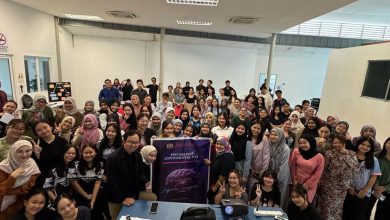‘Thammasat Graduates’ Achieve 92% Employment Rate, Highlighting ‘Strong Soft Skills’

Thammasat University has revealed the results of a survey on the employment status of its bachelor’s degree graduates, indicating an employment rate of 92.62%, which shows a continuous increase from previous cohorts. This reflects the strength of the curriculum and the readiness of graduates to enter the labor market. The majority of graduates, accounting for 64.77%, are employed in the private sector, followed by 15.83% in government positions and 12.45% in independent businesses. This success is attributed to the essential special skills that the university consistently provides to students throughout the program, such as the integration of practical professional skills, internships with leading organizations both domestically and internationally, and a cooperative education and career development center that effectively assists in career path planning.
Professor Dr. Supasawad Chardchawarn, Rector of Thammasat University, commented on a survey of 6,366 graduates, revealing that those in the health sciences group had the highest employment rate at 95.67%, followed by social sciences and humanities at 92.46%, and science and technology at 91.32%. This reflects the continued high demand for labor in the health sector in the post-COVID-19 era, as well as the potential for curriculum development and effective support from the university. Additionally, the average monthly income of graduates has increased by approximately 2.78% compared to the previous graduating class.
Mook – Arthitayaphorn Palasoon, a graduate of the Faculty of Nursing at Thammasat University, stated that the curriculum at Thammasat University is robust and fully aligned with the higher education qualification standards. It effectively integrates real professional skills, allowing students to gain work experience and build confidence as they prepare to enter the job market. These elements are crucial in making Thammasat graduates highly sought after in the labor market, as they are well-equipped with both professional skills and the ability to adapt to a rapidly changing work environment. Furthermore, Thammasat graduates possess outstanding soft skills, enabling them to collaborate effectively with others, adapt well, think critically, speak boldly, take action, and exhibit creativity.
Additionally, graduates from faculties, colleges, and institutions in the social sciences and humanities fields have been found to have equally high employment rates, exceeding 90%. For instance, the Faculty of Learning Sciences and Education has an employment rate of 98.33%, the Faculty of Commerce and Accountancy 96.56%, the Faculty of Sociology and Anthropology 94.64%, the Faculty of Journalism and Mass Communication 93.36%, the Faculty of Law 92.04%, the Faculty of Liberal Arts 91.39%, and the Faculty of Fine Arts 91.18%, among others.
The aforementioned statistics result from the systematic implementation of curriculum development that aligns with the demands of the labor market at Thammasat University. In terms of knowledge and essential skills that influence employability, critical thinking, proficiency in foreign languages, and communication are significant factors that enhance job-seeking opportunities. Therefore, in addition to academic knowledge, soft skills are equally important in creating differentiation in the labor market.
Thammasat University continues to uphold its position as a “Leading Comprehensive University for Future Societies” by focusing on producing graduates with the knowledge and adaptability needed for a rapidly changing work environment. The university is committed to developing curricula that align with labor market demands, fostering a learning-friendly environment, and supporting employment opportunities through internship programs, career guidance, and essential skill development, enabling graduates to adapt and compete confidently in the job market.




